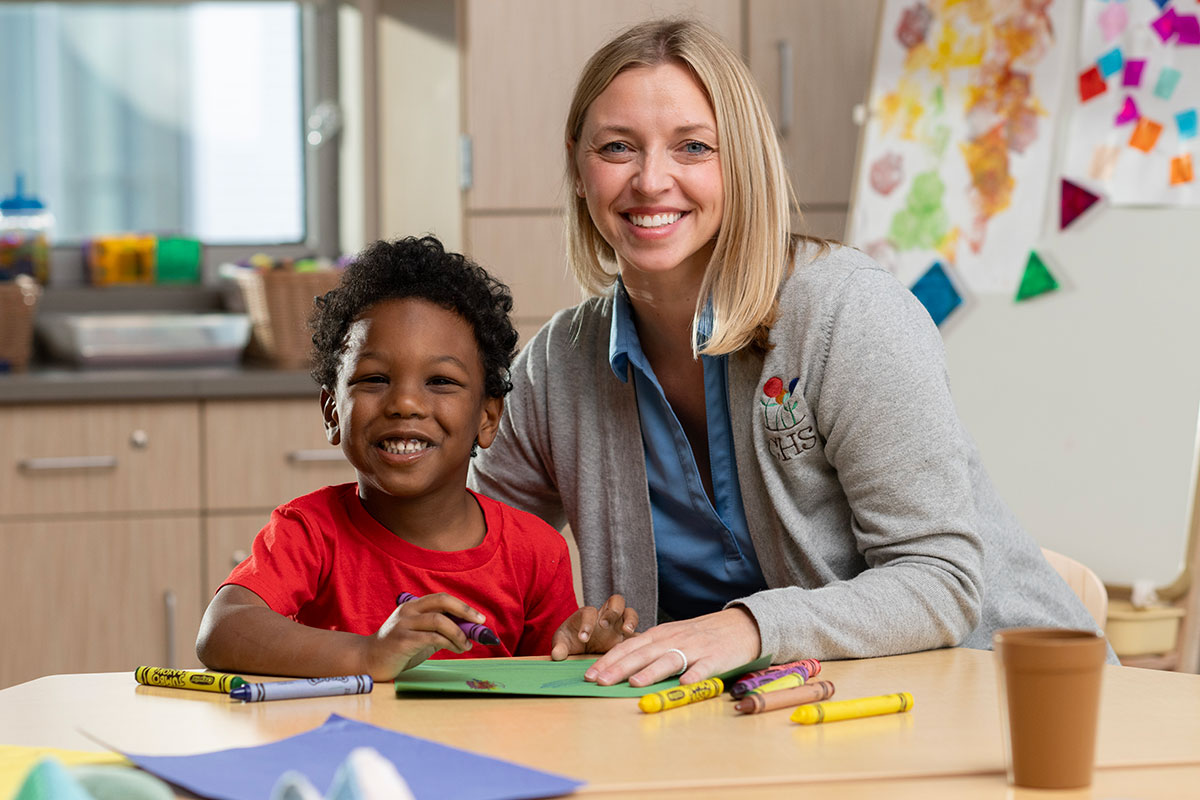Unlock Your Potential To Boost Your Child’s Learning

It’s not only early childhood educators who help children to develop literacy skills: it’s also the relationship between children and families. You are your child’s first teacher. And it’s not just about reading to children with a book in your hand. In fact, babies start developing these skills from the second they are born. ‘Early literacy skills’ is the name educators give to skills such as listening, speaking, reading, and writing.
These are skills that all families can build with their children. Every time families talk, read, sing, and play with babies, toddlers, or children with speech delays; they build the foundations for children to get ready to learn the language and develop reading skills.
At Catherine Hershey Schools for Early Learning, we are partnering with families to provide them with knowledge and resources so that they can support all aspects of their child’s growth and development.
If you use a different language at home: keep it up! It does not hinder children’s ability to learn English and, in fact, language proficiency, personal and social development, as well as academic performance.
Don’t be afraid to use technology at home or at your local library. Three new early-literacy apps — released for free from the Harvard Graduate School of Education (HGSE) and its Reach Every Reader initiative — are designed for parents and guardians to give children the foundations they need to read, learn, and thrive.
The free Small Wonders app has games, songs, and activity ideas that can be the start of many back-and-forth conversations, and it’s also available in Spanish.
Everyday Moments
You can incorporate ‘brain boosting’ activities into the everyday activitiesyou do with your young child.
For example, tell your child what you are doing during diaper changes, and name the items you are using, such as diapers, ointments, and baby wipes. During bath time, you can ask your child to name body parts and include bath toys such as vinyl books, bathtub letters, or shapes and numbers.
During mealtimes, you can name foods, talk about how food grows, describe the colors of food, count vegetables, and introduce ideas such as hot, cold, and warm. On grocery shopping trips, you can head to the produce section to build your child’s word bank with the names of fruits and vegetables.
At bedtime, you can read or tell stories every night. Many children love to hear the same book over and over again, and you can talk about illustrations or ask older children how they feel about what’s happening in the story. During playtime, use talking and listening as part of your play to provide opportunities for your child to use language and explore new concepts and ideas. Narrating the world around a child can help them to understand and someday use those words themselves.
Don’t forget music time. Singing songs and nursery rhymes, clapping to the beat, and dancing are all ways to expand your child’s understanding of the world and develop their brain power.
Keep a variety of children’s books accessible at home from a young age. You can borrow from your local library and get advice from the librarians on the best options for your child.
Families can contribute to their children’s education in valuable ways that don’t take a lot of time and don’t need expensive educational materials. It doesn’t matter if you aren’t a big reader or you’d rather shoot hoops than solve equations, you have the power to boost your child’s brain and give them a lifelong love of learning.




